2021 ChaLearn Looking at People Sign Language Recognition in the Wild Workshop at CVPR
Invited speakers
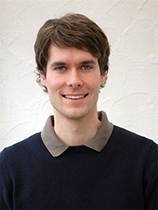
Juergen Gall
Computer Vision Group, Bonn, Germany
gall@iai.uni-bonn.de
Prof. Dr. Juergen Gall is professor and head of the Computer Vision Group at the University of Bonn since June 2013. After his Ph.D. in computer science from the Saarland University and the Max Planck Institut für Informatik, he was a postdoctoral researcher at the Computer Vision Laboratory, ETH Zurich, from 2009 until 2012 and senior research scientist at the Max Planck Institute for Intelligent Systems in Tübingen from 2012 until 2013. He received a grant for an independent Emmy Noether research group from the German Research Foundation (DFG) in 2013, the German Pattern Recognition Award of the German Association for Pattern Recognition (DAGM) in 2014, and an ERC Starting Grant in 2016. He is spokesperson of the DFG funded research unit "Anticipating Human Behavior" at the University of Bonn since 2017.
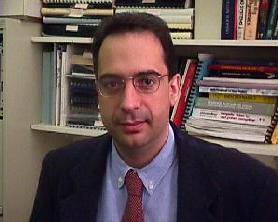
Dimitris Metaxas
Rutgers, City of New Brunswick, United States of America
dnm@cs.rutgers.edu
Dr. Dimitris Metaxas is a Distinguished Professor in the Department of Computer Science at Rutgers University since July 2007. From September 2001 to June 2007 he was a Professor in the same department. He is currently directing the Center for Computational Biomedicine, Imaging and Modeling (CBIM). From January 1998 to September 2001 he was a tenured Associate Professor in the Computer and Information Science Department of the University of Pennsylvania and Director of the VAST Lab. Prior to this he was an Assistant Professor in the same department since 1992. Prof. Metaxas received a Diploma in Electrical Engineering from the National Technical University of Athens of Athens Greece in 1986, an M.Sc. in Computer Science from the University of Maryland, College Park in 1988, and a Ph.D. in Computer Science from the University of Toronto, Ontario, Canada in 1992. Dr. Metaxas has been conducting research towards the development of formal methods upon which both computer vision, computer graphics and medical imaging can advance synergistically. In computer vision, he works on the simultaneous segmentation and fitting of complex objects, shape representation, statistical model-based tracking, learning, sparsity, ASL and gesture recognition. In particular he is focusing on human body and shape motion analysis, human surveillance, security applications, ASL recognition, behavior modeling and analysis and scalable solutions to large and distributed sensor-based networks.

Antonis Argyros
University of Crete, Crete, Greece
argyros@ics.forth.gr
Antonis A. Argyros (Αντώνης Αργυρός) is a Professor of Computer Science at the Computer Science Department (CSD), University of Crete (UoC) and a researcher at the Institute of Computer Science (ICS), Foundation for Research and Technology-Hellas (FORTH) in Heraklion, Crete, Greece. He received a B.Sc. degree in Computer Science (1989) and a M.Sc. degree in Computer Science (1992), both from the Computer Science Department, University of Crete. On July 1996, he completed his PhD on visual motion analysis at the same Department. He has been a postdoctoral fellow at the Computational Vision and Active Perception Laboratory (CVAP) at the Royal Institute of Technology in Stockholm, Sweden. Since 1999, as a member of the Computational Vision and Robotics Laboratory (CVRL) of FORTH-ICS, he has been involved in many RTD projects in computer vision, image analysis and robotics.His current research interests fall in the areas of computer vision and pattern recognition, with emphasis on the analysis of humans in images and videos, human pose analysis, recognition of human activities and gestures, 3D computer vision, as well as image motion and tracking. He is also interested in applications of computer vision in the fields of robotics and smart environments. In these areas, he has published more than 160 papers in scientific journals and refereed conference proceedings and has also delivered several invited and keynote talks in international events, universities and research centers.

Richard Bowden
University of Surrey, Guildford, United Kingdom
r.bowden@surrey.ac.uk
Richard Bowden received a BSc in computer science from the University of London in ’93, an MSc with distinction from the University of Leeds in ’95, and a PhD in computer vision from Brunel University in ’99 for which he was awarded the Sullivan Doctoral Thesis Prize. He is Professor of Computer Vision and Machine Learning at the University of Surrey, UK, where he leads the Cognitive Vision Group within the Centre for Vision Speech and Signal Processing and was recently awarded a Royal Society Leverhulme Trust Senior Research Fellowship. His research centres on the use of computer vision to locate, track, and understand humans. He is an Associate Editor for Image and Vision Computing and IEEE Pattern Analysis and Machine Intelligence. He was a member of the British Machine Vision Association (BMVA) executive committee and a company director for seven years. He is a member of the BMVA, a fellow of the Higher Education Academy, and a senior member of the IEEE.
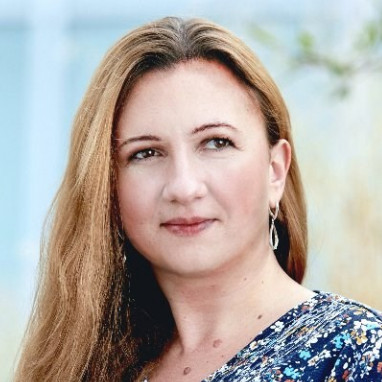
Natalia Neverova
Facebook AI Research
Dr. Natalia Neverova (https://nneverova.github.io/) is a Research Scientist at Facebook AI Research (FAIR) team working on deep learning and computer vision, France. Before coming to FAIR in 2016, she completed her PhD at INSA Lyon (France) and the University of Guelph (Canada). She has also spent time as a visiting researcher at Google. Her main research interests are statistical machine learning and computer vision with emphasis on deep learning and human centered applications. She was one of the organizers in a DensePose competition as a part of the COCO Recognition Challenge at ICCV 2019. She is serving as an Area Chair for ICCV 2019, CVPR 2020, ECCV 2020, NeurIPS 2020, 3DV 2020 and CVPR 2021.
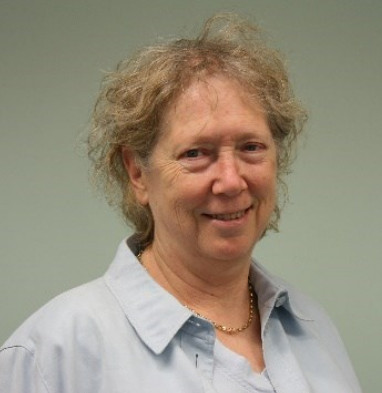
Bencie Woll
UCL Deafness Cognition and Language Research Centre
Prof. Bencie Woll (https://www.ucl.ac.uk/dcal/people/core-team/professor-bencie-woll) is Honorary Professor of Sign Language Linguistics at UCL Deafness Cognition and Language Research Centre. She has been involved in research on sign language for nearly 40 years, starting with research at the University of Bristol where she was a co-founder of the Centre for Deaf Studies, pioneering research on the linguistics of BSL and on Deaf Studies. She moved to City University London in 2005 to take up the newly created Chair in Sign Language and Deaf Studies. From the City she moved in 2005 to UCL, where she is Professor of Sign Language and Deaf Studies. In 2006, together with colleagues at UCL and City, she founded DCAL, and served as Director until 2016. Her research and teaching interests embrace a wide range of topics related to sign language, including the linguistics of British Sign Language (BSL) and other sign languages, the history and sociolinguistics of BSL and the Deaf community, the development of BSL in young children, and sign language and the brain, including developmental and acquired sign language impairments.
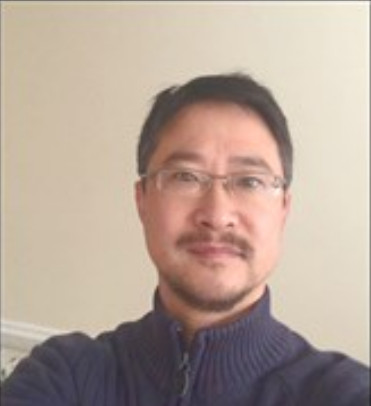
Hongdong Li
Prof. Hongdong Li (http://users.cecs.anu.edu.au/~hongdong/) is currently working at Australian National University. His research interest is computer vision, 3D visual perception, robotics, machine learning and AI (artificial intelligence) in general. He is an Area Chair for ECCV 2020 to be held in Glasgow 2020, and an Area Chair for CVPR 2020 at Seattle 2020. He is ICCV 2019 Presentation Chair and Area Chair. He serves on the Editorial Board as Associate Editor for the IEEE- Transactions on Pattern Analysis and Machine Intelligence (PAMI), and Associate Editor for Image and Vision Computing, IPSJ CVA, IET-CV etc. Program Chair for DICTA 2017, ACCV 2018, ACRA 2015, and Area Chair for recent years CVPR, ICCV, BMVC, Program Chair for ACCV 2018, and 3DV.

Carol Neidle
Boston University, Boston, United States of America
carol@bu.edu
Professor Neidle teaches courses in general linguistics and French linguistics. Her research interests include syntactic theory and the syntactic structure of American Sign Language (ASL). Professor Neidle is the Director of the American Sign Language Linguistic Research Project (ASLLRP). Funding from the NSF supports linguistic research on the syntactic structure of ASL, development of computational tools (including SignStream, a MacOS application) to facilitate analysis of signed language and gesture, and collaborative research with computer scientists interested in the problem of sign language recognition. Through our National Center for Sign Language and Gesture Resources, several different types of experimental resources and analyzed data are made publicly available. Her publications include The Syntax of American Sign Language: Functional Categories and Hierarchical Structure (MIT Press) and The Role of Case in Russian Syntax (Dordrecht: Kluwer).
News
There are no news registered in